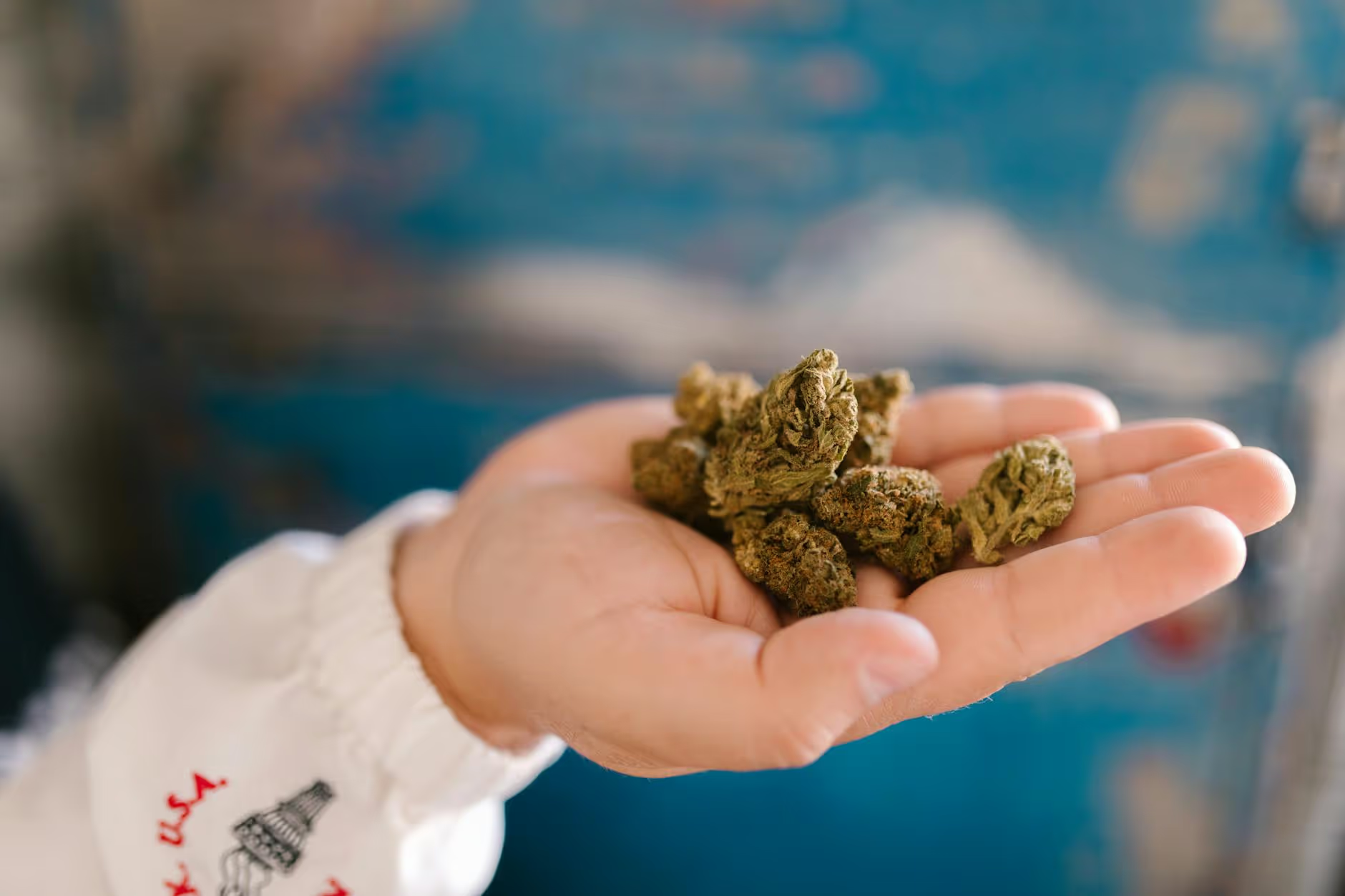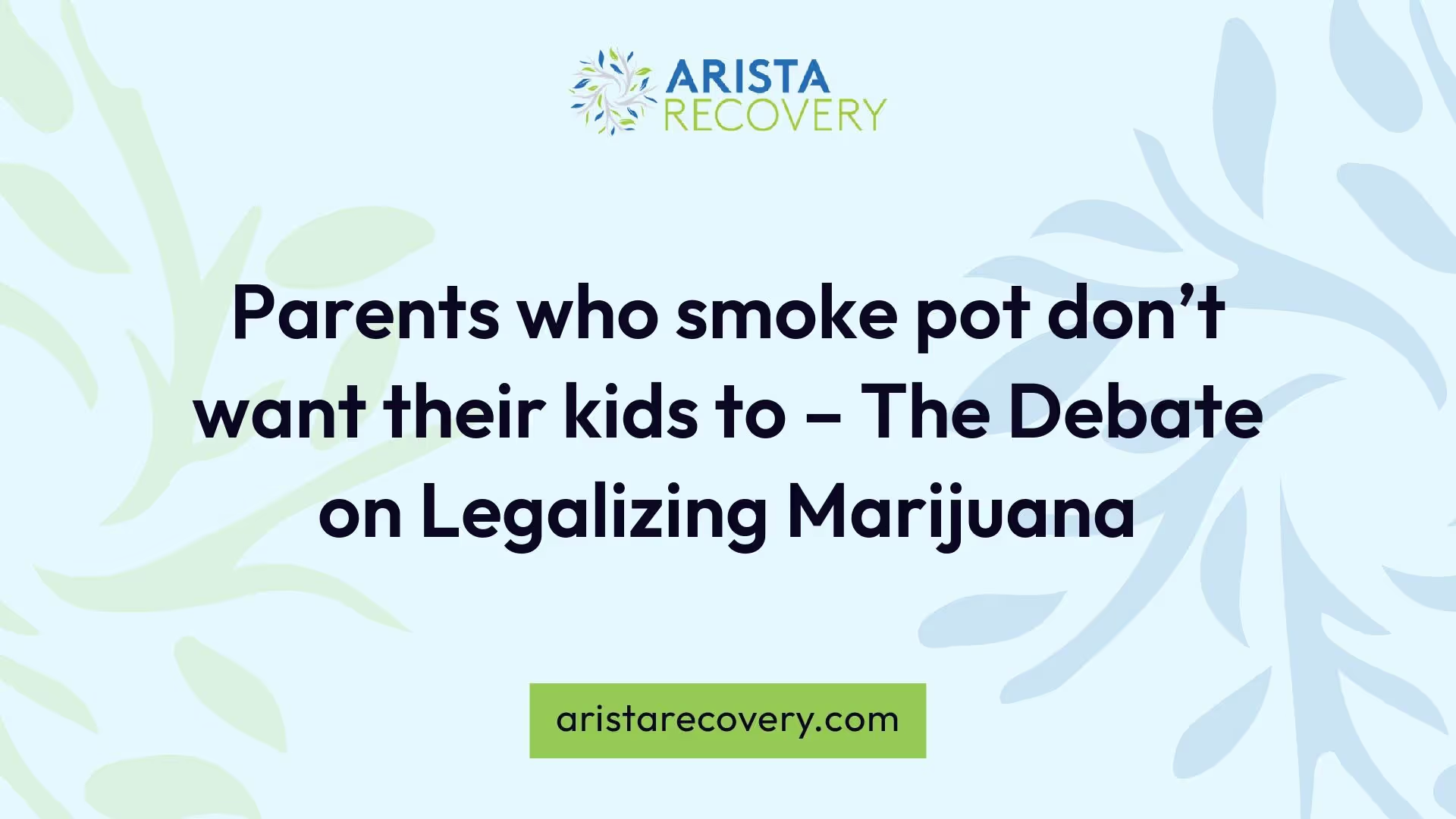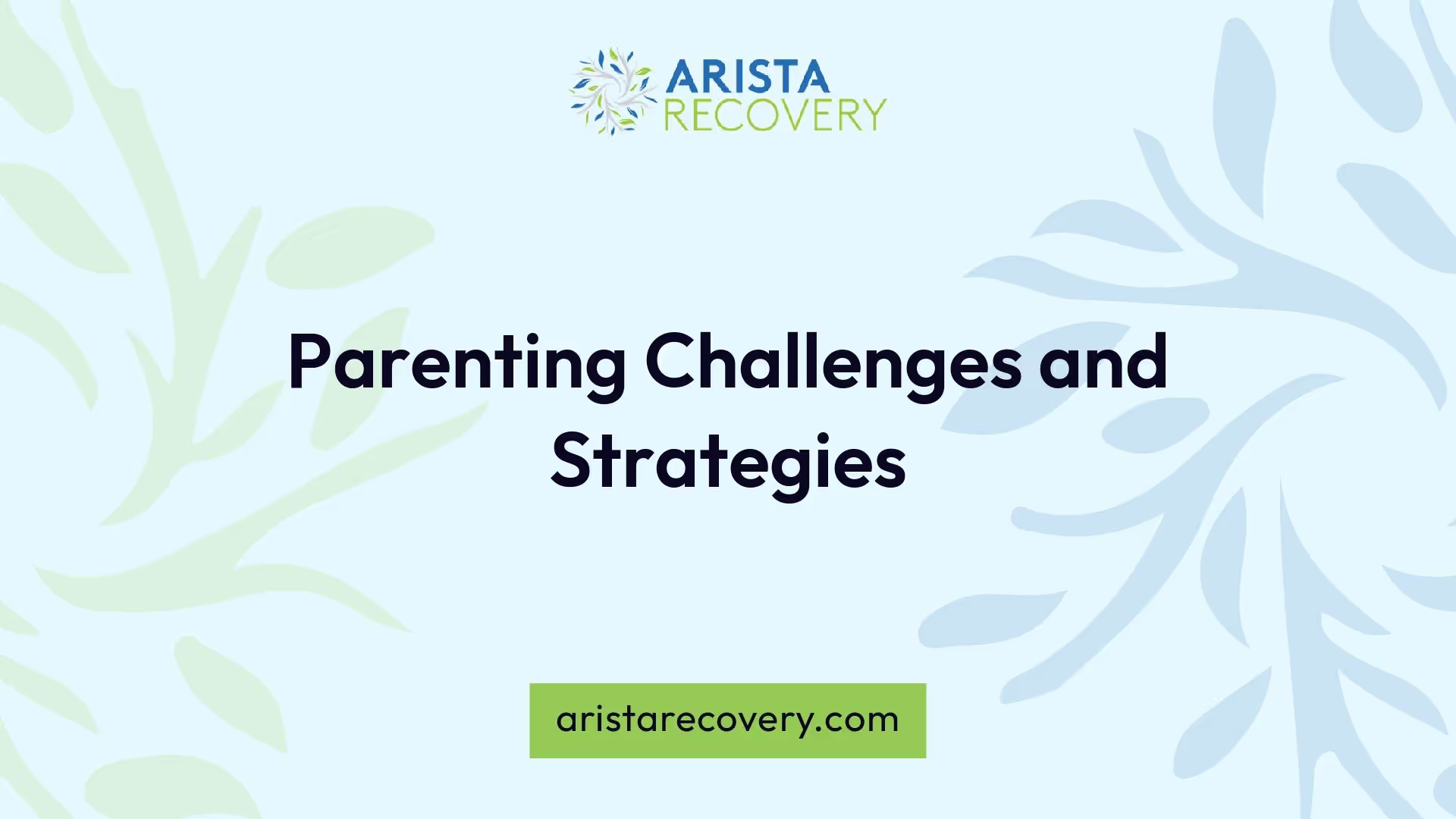Parents who smoke pot don’t want their kids to – The Debate on Legalizing Marijuana

Parental Perspectives on Marijuana Use

Misconceptions and Legalization
The legalization of marijuana has sparked various misconceptions among parents, particularly regarding the legal age for use. For instance, one third of parents in Washington State mistakenly believed that the legal age for non-medical marijuana use was 18, despite it being 21 years after its legalization in 2012. This misunderstanding highlights a knowledge gap that can influence how parents approach discussions about marijuana with their children.
Since the legalization of adult non-medical marijuana use, there has been a notable shift in parental attitudes. There was a significant increase in the approval of adult marijuana use and a decrease in the perception of harm associated with regular use. However, despite this shift in viewpoint, most parents in Washington State remained opposed to teen use of marijuana, indicating a complex set of beliefs surrounding legalization.
PerceptionBefore LegalizationAfter LegalizationApproval of Adult UseLowIncreasedPerceived HarmHighDecreasedOpposition to Teen UseHighRemained Opposed
Teen Use Concerns
While perceptions of adult use may have shifted, concerns about teen marijuana use persist among parents. Many parents express worry about the potential risks associated with underage consumption, citing it could lead to negative ramifications for their children's health, education, and overall development.
Despite the legalization of recreational marijuana in several states for adults aged 21 and older, recreational use by minors remains illegal across the United States. This legal landscape creates a dichotomy where parents navigate their acceptance of adult use while instilling a sense of caution about teen access to marijuana.
Parents may struggle to balance this tension, as they witness increased acceptance of marijuana in society. Their concerns often revolve around the potential influence of adult caregivers who may use cannabis, worrying about the modeling behavior that may affect their children's choices. The challenge lies in facilitating open communication with their adolescents about these issues, fostering a safe environment where concerns can be addressed effectively.
Impact of Marijuana Legalization
As society continues to grapple with the implications of marijuana legalization, it's essential to understand its effects on parents and their perceptions of marijuana use. This section examines the frequency of marijuana use among parents and their overall opposition to teen use despite shifts in public opinion.
Frequency and Disorders
In Washington State, where adult non-medical marijuana use was legalized, a notable increase in both the frequency of marijuana use and the prevalence of marijuana use disorder was observed among parents. Research indicates that following legalization, many parents reported a higher frequency of marijuana consumption, leading to concerns about potential impacts on parenting capabilities and family dynamics.
StatisticValueParents who reported cannabis use (last 6 months)13%Increased negative parenting behaviors attributed to cannabis useSignificant
The findings revealed that cannabis-using parents encountered more challenges, including negative parenting practices and adverse childhood experiences (ACEs). Parents who reported using cannabis also experienced elevated levels of anxiety and depression, which can further complicate their parenting roles.
Parental Opposition
Despite the increase in marijuana use and its acceptance among adults, many parents remain firmly opposed to the idea of teenage marijuana use. Research has shown that most parents in Washington State continue to express widespread disapproval regarding marijuana consumption by adolescents, regardless of their own legal usage patterns.
OpinionPercentageParents opposed to teen marijuana useHigh
This opposition highlights a significant disconnect between adult usage and the perceived risks involved with adolescent marijuana consumption. Parents express concerns about the potential negative consequences of marijuana on their children's health and development, emphasizing the need for ongoing discussions about substance use and its implications in families.
Understanding these dimensions of parental perspectives can provide valuable insights into the ongoing debate surrounding marijuana legalization and its multifaceted impacts on families.
Parenting Challenges and Strategies

As marijuana legalization becomes more prevalent, parents face unique challenges regarding its use in their households. Some navigate the balance between their personal consumption and the well-being of their children. This section discusses the calming effects of marijuana and strategies parents employ to communicate effectively about its use.
Calming Effects of Marijuana
For some parents, marijuana serves as a tool to manage stress and emotional difficulties associated with parenting. Research indicates that six out of eleven medical marijuana patients who were parents reported that using marijuana helped them feel calmer and handle challenging emotions related to parenting (NIH).
Reason for UsePercentage of ParentsStress relief55%Enhancement of patience45%Emotional regulation40%
Understanding this perspective can help shape the conversation around parental marijuana use, both in terms of acknowledging its potential benefits and addressing the associated risks.
Securing and Communicating
Parents often adopt different strategies regarding how to handle their marijuana use in relation to their children. Some believe that hiding their marijuana usage from their kids is the best approach, while others advocate for openness about its use. This divergence reflects a broader debate among parents regarding what is most appropriate and responsible.
Parental marijuana use has been linked to an increased risk of substance use among adolescents and young adults living in the same household. This includes marijuana, tobacco, alcohol, and even opioids. Consequently, parents concerned about the potential impact of their usage often focus on securing marijuana and establishing open lines of communication with their children.
Communication ApproachDescriptionHiding UseKeeping marijuana use a secret to avoid exposing children.OpennessDiscussing marijuana use with children to clarify its role and address misconceptions.
Engaging in honest discussions can help mitigate misunderstandings and reduce the likelihood of curiosity-led experimentation among children. Parents are encouraged to develop strategies that foster understanding while ensuring that their marijuana use does not adversely impact their children's substance use behavior later in life.
Children's Exposure and Awareness
Navigating the topic of marijuana use in relation to children requires thoughtful consideration from parents. The approaches taken by parents can vary significantly in terms of whether they choose to hide their marijuana use or be open about it.
Hiding vs. Openness
Some parents feel that the best approach is to conceal their marijuana use from their children. They may believe that shielding their kids from direct exposure to marijuana will prevent early use or misunderstandings about its effects. On the other hand, some parents advocate for openness, believing that transparent discussions about marijuana can foster a healthy understanding and mitigate risks associated with misinformation. A study indicates that these differing perspectives are common, with parents grappling with the implications of their choices.
ApproachDescriptionPotential BenefitsHidingConcealing marijuana use from childrenPrevents early exposure; reduces premature curiosityOpennessDiscussing marijuana use and its implicationsEncourages informed discussions; builds trust
Approaching Children About Marijuana
When parents choose to discuss marijuana with their children, the conversation should be approached with care. It is vital to create an environment where children feel safe to ask questions and express their feelings. Open dialogue can help demystify marijuana and clarify its effects, potential risks, and legal aspects, especially since cannabis use tends to be higher in states with legalized medical and recreational options (PubMed Central).
Engaging in discussions that incorporate educational resources might be beneficial. Parents can reference data on the increasing legalization of cannabis across the U.S., with 18 states and the District of Columbia having legalized recreational use, as well as the implications this may have for adolescent behavior and perceptions (NCBI).
In summary, understanding and addressing children's exposure to marijuana requires a balanced approach that considers the parent's approach and the necessity for openness, ensuring that children receive accurate information and guidance.
Concerns and Risks for Offspring
Substance Use Risks
The relationship between parental marijuana use and substance use among children and adolescents has been a focal point in discussions surrounding the legalization of marijuana. Research demonstrates that parental marijuana use is associated with an elevated risk of substance use, including marijuana, tobacco, alcohol, and opioid misuse among their offspring.
A comprehensive study observed over 24,900 parent-offspring pairs, revealing significant links between parental marijuana consumption and increased likelihood of substance use among adolescents and young adults. Specifically, it found that parental marijuana use correlates with a higher risk of their children engaging in similar behaviors, regardless of the frequency of use by the parents (JAMA Network Open). This insight emphasizes the importance of screening and educating families about the potential risks associated with marijuana use, particularly in households where parents smoke pot (SAMHSA).
Parental Substance UseIncreased Risk for Offspring (%)Marijuana30%Tobacco25%Alcohol35%Opioids20%
Multigenerational Impact
The multigenerational impacts of parental marijuana use extend beyond immediate substance use concerns. Legalization of marijuana has been associated with increased maternal use during pregnancy and postpartum periods, which raises questions about the long-term effects on children's development and behavioral health.
Though the implications of legalization on child welfare, such as potential abuse and neglect, have not been fully studied, initial findings indicate that legalization might foster a permissive environment surrounding cannabis use. This shift in perception can lead to increased consumption among parents and may affect children's views and behaviors regarding not only marijuana but also other substances.
Understanding these risks is crucial for parents navigating the legalization debate. By fostering open communication and constructing healthy environments, parents can mitigate some of the potential negative influences that arise from their use of marijuana.
Marijuana Use and Adolescent Behavior
Effects on Learning and Health
Research indicates that marijuana can pose serious problems for young people, particularly regarding their learning capabilities and overall health. Short-term use of marijuana can cause various cognitive impairments, while regular usage may lead to significant issues such as Cannabis Use Disorder.
Some specific effects on learning and health include:
EffectDescriptionImpaired MemoryMarijuana can negatively affect short-term memory, making it difficult for adolescents to retain information learned in school.Decreased ConcentrationUsers may struggle to focus during class or while studying, impacting academic performance.Emotional IssuesRegular use has been linked to increased anxiety and depression, affecting overall mental health.Risky BehaviorMarijuana use can lead to increased experimentation with other substances, including tobacco and alcohol.
Furthermore, studies suggest that states that have legalized medical and recreational cannabis often report higher rates of cannabis use, especially among adults. However, findings regarding adolescent use after legalization have been inconsistent.
Preventive Strategies
To mitigate the risks associated with marijuana use among adolescents, parents play a crucial role. Evidence shows that youth are less likely to experiment with marijuana if they feel comfortable discussing these issues with their parents and are aware of their parents' attitudes toward drug use.
Here are effective strategies parents can apply:
StrategyDescriptionOpen CommunicationEngage children in early discussions about marijuana, tailoring conversations to their age and understanding, starting in late elementary and early middle school.Education on RisksInform children about the harmful effects of marijuana and associated behavioral risks, emphasizing the importance of making informed decisions.Monitoring and SupportKeep track of children's activities and social circles and offer guidance and support to foster healthy environments.Role ModelingDemonstrate healthy behaviors regarding substance use to set a positive example for children.
Additionally, parental marijuana use can significantly influence their children's behavior and choices. Studies show that cannabis use by parents correlates with an increased risk of substance use among adolescents and young adults living in the same household. These insights stress the importance of parental involvement and responsible behavior in shaping the future choices of their children.
You’re not alone in this.
When mental health challenges and addiction intersect, it can feel isolating. At Arista, we offer compassionate, evidence-based, and trauma-informed care to help you heal, grow, and move forward.
You’re not alone in this.
When mental health challenges and addiction intersect, it can feel isolating. At Arista, we offer compassionate, evidence-based, and trauma-informed care to help you heal, grow, and move forward.
Support that moves with you.
You’ve taken a brave first step. At Arista Recovery, we’re here to help you continue with best-in-class care designed for long-term healing and support.
.webp)






